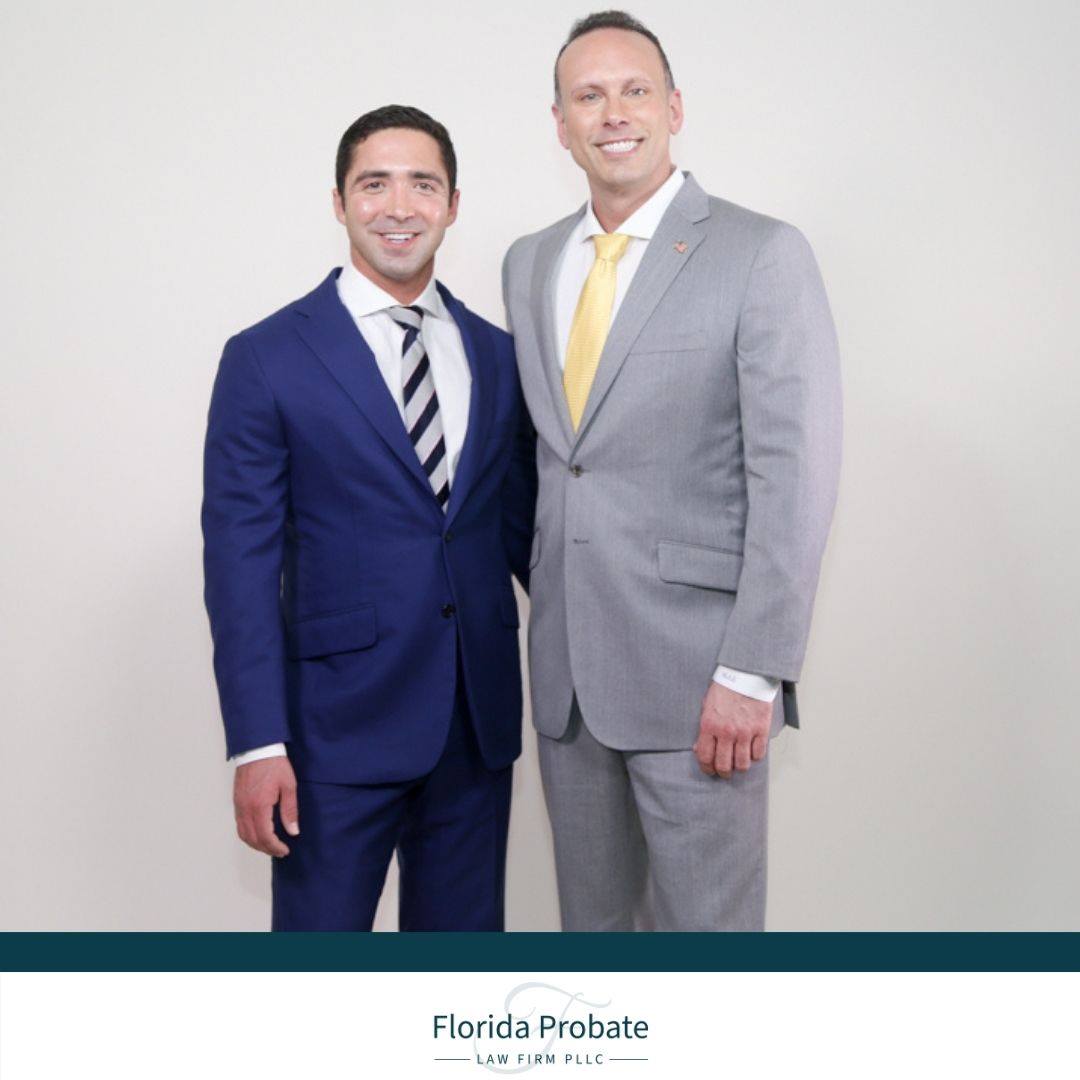Last Will & Testament in Florida
Who do you want to receive your money and property after you pass away? Who do you trust to be in control of your estate? A Last Will & Testament in Florida is the most basic legal document to ensure that you decide the answers to these questions, not a judge or the state of Florida.

What is a Last Will & Testament?
A Last Will and Testament—commonly referred to as just a “Will”—is a formal legal document in which someone directs the distribution of their assets after death. A Will is also used to choose a personal representative, aka executor, who will be appointed by the court to manage the estate and disburse the assets according to the provisions of the Last Will & Testament.
When someone dies without a Will in Florida, their estate will be distributed according to Florida intestate laws. The rules for intestate succession in Florida determine who inherits the assets of the estate.
In general, the order of priority for inheritance via intestate succession is as follows:
- 1. Spouse
- 2. Descendants such as children and/or grandchildren
- 3. Parents
- 4. Siblings and/or their children
One notable exception to this order occurs when either a husband or wife has children from outside the marriage. If the decedent and the surviving spouse are a traditional nuclear family and have no children from outside the marriage, then 100% of the estate passes to the surviving spouse. Alternatively, if the decedent or the surviving spouse has a child outside of the marriage (with some other partner), then the surviving spouse is entitled to 50% of the estate, and the remaining 50% is split among all of the decedent’s descendants.

What a Last Will & Testament in Florida Can and Cannot Do
Everyone should have a Last Will & Testament to make their wishes known and ensure their property goes to the people or organizations of their choosing.
It is important, however, to understand what a Will can and cannot do.
A Will can do the following:
- · Determine how your estate is distributed and who receives assets or property.
- · Keep assets from going to people you do not want to receive it, such as estranged family members.
- · Nominate a guardian for minor children.
- · Choose a personal representative, aka executor, responsible for administering your estate.
There are many things, however, that a Will cannot do:
- · Avoid Probate: In Florida, probate administration is almost always required, with few exceptions, when the decedent owned assets or property in their sole name. Having a validly executed Last Will and Testament does not allow one to escape the probate process.
- · Gift Jointly Titled Assets: Most jointly titled assets, e.g., bank accounts, are not probate assets and pass outside the probate process. With regard to the transfer of real estate, it depends on how the most recent deed is titled. For example, when married couples purchase and own real estate, title is generally as Joint Tenants with Right of Survivorship. This means that title automatically passes to the surviving spouse upon death.
- · Change the Designated Beneficiary on Bank Account, IRA, or Life Insurance Policy: If these types of accounts were solely owned and have a named beneficiary, the beneficiary is immediately entitled to the funds upon death of the account owner. Only if there were no named beneficiaries would the asset/account be subject to the probate process.
- · Give Beneficiaries Immediate Access to Estate Funds or Assets: In Florida, the probate process is a court supervised process that can take a few months or longer. Upon the death of a decedent, it is standard procedure for financial institutions to freeze the decedent’s accounts. The accounts will not be unlocked until the court appoints a personal representative to act on behalf of the estate.

Requirements for a Florida Will & Who Can Make One
For a Will to be valid, it must meet certain requirements:
- 1. It is in writing.
- 2. It is signed by the testator.
- 3. The testator’s signature is at the end of the Will.
- 4. The testator signed the Will in front of two witnesses.
- 5. The two witnesses signed the Will in the presence of each other and the testator.
Making Changes to a Florida Will
After a Will is drafted, life can change. With certain life events, you may need to change beneficiaries, address new assets, or name a different personal representative. A Will can either be revoked, and potentially redone in full, or simply modified with a document called a “Codicil.”
A Codicil is often used to make a simple adjustment, such as to change the nominated personal representative. However, a Codicil must be executed with the same legal formalities as a Will. A Will can also be changed through revocation. A Will or Codicil can be revoked completely through destruction or written instruction.
Can a Will Be Challenged in Florida?
When drafting a Will, it is important to consider the potential that it may be challenged in court. Only “interested persons” such as heirs, creditors, and beneficiaries that can benefit from having a Will voided have the right to challenge a Will. Challenging a Will also requires a legal basis such as:
- · Irregularities: In the Will’s execution.
- · Lack of Capacity: This requires proving the decedent did not have testamentary capacity when the Will was made.
- · Undue Influence: This requires proving that someone else exercised undue influence or control over the testator in creating/modifying a Will or control over the terms of the Will..
- · Fraud: A Will can be challenged if deceit was used to defeat the wishes of the testator. For example, during the execution of a Will, the testator was told they were signing something different or they were intentionally misled about material facts in the Will that influenced their decision.
A Will is the foundation of any estate plan. It is always recommended to hire an attorney to draft the Last Will & Testament to ensure it is drafted and executed properly.

Florida Probate Law Firm Can Help You Through the Entire Probate Process, at a Fair Cost to You and Your Family
Do you need help with probate as an executor or personal representative? Contact the Florida Probate Law Firm, PLLC for a free 30-minute consultation. We help families through the Florida probate process with services tailored to your individual needs.
We often work with families so that our invoices are paid directly from the decedent’s assets, such as bank accounts or the sale of the decedent’s residence, in order to minimize out of pocket expenses for the family to whatever extent possible.
Schedule your free consultation with Florida Probate Law Firm by filling out our contact form below.

